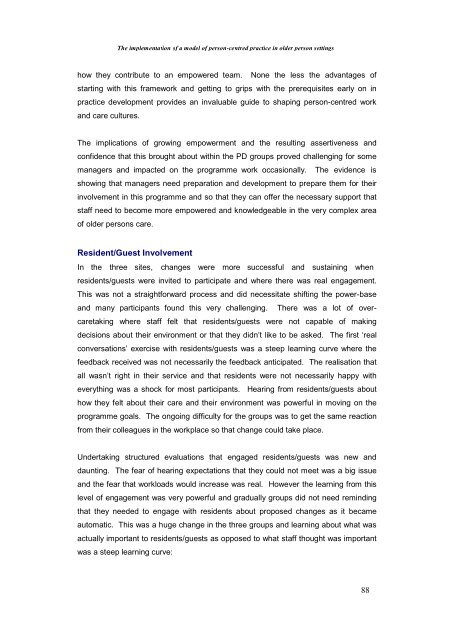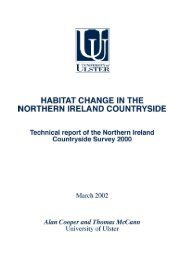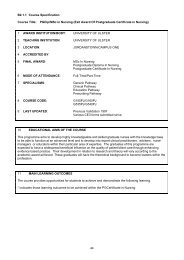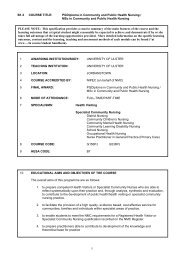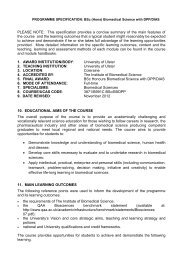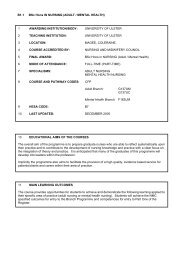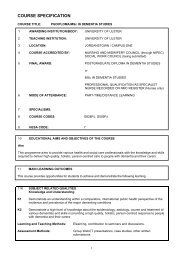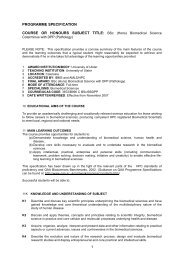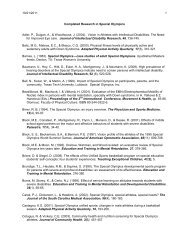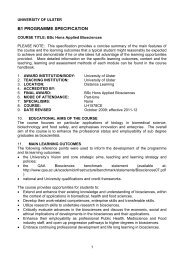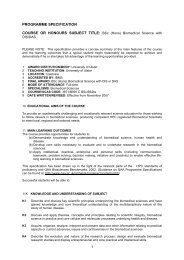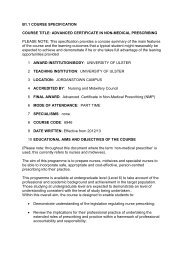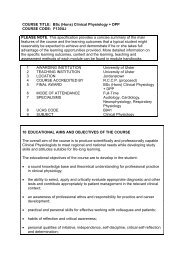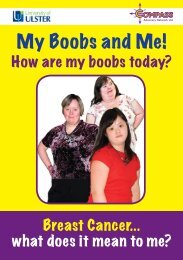The Implementation of a Model of Person-Centred Practice In Older ...
The Implementation of a Model of Person-Centred Practice In Older ...
The Implementation of a Model of Person-Centred Practice In Older ...
Create successful ePaper yourself
Turn your PDF publications into a flip-book with our unique Google optimized e-Paper software.
<strong>The</strong> implementation <strong>of</strong> a model <strong>of</strong> person-centred practice in older person settings<br />
how they contribute to an empowered team. None the less the advantages <strong>of</strong><br />
starting with this framework and getting to grips with the prerequisites early on in<br />
practice development provides an invaluable guide to shaping person-centred work<br />
and care cultures.<br />
<strong>The</strong> implications <strong>of</strong> growing empowerment and the resulting assertiveness and<br />
confidence that this brought about within the PD groups proved challenging for some<br />
managers and impacted on the programme work occasionally. <strong>The</strong> evidence is<br />
showing that managers need preparation and development to prepare them for their<br />
involvement in this programme and so that they can <strong>of</strong>fer the necessary support that<br />
staff need to become more empowered and knowledgeable in the very complex area<br />
<strong>of</strong> older persons care.<br />
Resident/Guest <strong>In</strong>volvement<br />
<strong>In</strong> the three sites, changes were more successful and sustaining when<br />
residents/guests were invited to participate and where there was real engagement.<br />
This was not a straightforward process and did necessitate shifting the power-base<br />
and many participants found this very challenging. <strong>The</strong>re was a lot <strong>of</strong> overcaretaking<br />
where staff felt that residents/guests were not capable <strong>of</strong> making<br />
decisions about their environment or that they didn’t like to be asked. <strong>The</strong> first ‘real<br />
conversations’ exercise with residents/guests was a steep learning curve where the<br />
feedback received was not necessarily the feedback anticipated. <strong>The</strong> realisation that<br />
all wasn’t right in their service and that residents were not necessarily happy with<br />
everything was a shock for most participants. Hearing from residents/guests about<br />
how they felt about their care and their environment was powerful in moving on the<br />
programme goals. <strong>The</strong> ongoing difficulty for the groups was to get the same reaction<br />
from their colleagues in the workplace so that change could take place.<br />
Undertaking structured evaluations that engaged residents/guests was new and<br />
daunting. <strong>The</strong> fear <strong>of</strong> hearing expectations that they could not meet was a big issue<br />
and the fear that workloads would increase was real. However the learning from this<br />
level <strong>of</strong> engagement was very powerful and gradually groups did not need reminding<br />
that they needed to engage with residents about proposed changes as it became<br />
automatic. This was a huge change in the three groups and learning about what was<br />
actually important to residents/guests as opposed to what staff thought was important<br />
was a steep learning curve:<br />
88


